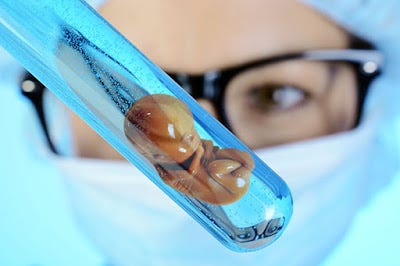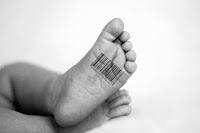Family bonds, motherhood and contract law
The New York Times headline read: “Couple Forced to Adopt Their Own Children After a Surrogate Pregnancy.” It caught my attention. Such an indignity would be outrageous!
But then I started asking questions. How could a mom and dad adopt their own children in the first place? Who would be so evil as to force anyone into adopting children that they did not want to raise?
Upon examination, it turns out that almost every word of the headline was either false or selected to hide the truth. To parse this twisted sentence, the reader must enter the world of Humpty Dumpty where a word “means exactly what I choose it to mean.”
Let’s start with the phrase, “forced to adopt.” Normally, it would mean that people who did not want to be parents were forced into raising children. But this story is not about reluctant parents. The couple very much wants to acquire these children, but also wants to skirt the normal adoption process required by the state of Michigan.
Why? Because they assume that the children already belong to them. If that were the case, who wouldn’t be indignant? Any state that fails to recognize the bonds of mother, father, and child, is a failed state. States protect God-given parental rights for the sake of the children. They should not create new adult rights that trample the rights of children.
But the New York Times headline is engaged in the fallacy of “question begging.” By declaring that these are “Their own children” the NYT assumes the very point at issue. Both Michigan’s legislature and judiciary have already decided that they are not.
Family law has always recognized a child’s mother as that woman who gave her birth. Likewise, fathers are identified as the man who loved her so much that a child was conceived in her womb.
The New York Times wants to overturn settled family law. In its brave new world, mothers and fathers are not defined by love and birth. They are, rather, defined by contracts and ownership.
Lauren Vermilye, who mothered the twins for nine months, filed an affidavit that the twins did not belong to her. So did her husband, and so did the “fertility doctor” who transferred the boy and girl into her uterus when they were about a week old.
Motherhood is a lifelong relationship. It is not contract work. It begins at conception and lasts into eternity. Even if the Gray Lady wants to nullify a sacred relationship by creating new definitions in contract law, the newborn twins have no say.
They are not old enough to consent to a contract. So, they are at the mercy of others who are. Put yourself in their shoes and ask: If I were a newborn baby, whose entire life-experience knew Mrs. Vermilye to be my mother, would I want her to give me away in fulfillment of a contract with strangers? That is the fundamental question of surrogacy.
There are other questions, of course, which are discussed at length elsewhere. Questions about genetics and contracts arise. Extreme health risks to egg donors and surrogate mothers are at stake. Concerns about potential psychological harm and consent that is adequately informed are real. But the most life-altering burden of any party to the transaction is borne by the newborn baby who loses the only home he has ever known.
America fought a bloody Civil War that decisively ended the right of one human being to own another. And yet, here we are again. Ever since unregulated and unprincipled scientists started creating human beings outside of the mother’s womb (the first IVF baby was born in 1978), these homeless children have been treated under property laws, rather than under family law.
This is a grave injustice.
Now a proposed law, HB 73 “Birth certificates-gestational agreements,” is under consideration in Wyoming. It would bring this brave new world into Wyoming Family Law. Current law treats an embryo conceived by IVF as property until the moment he or she is placed in the mother. After that, it is protected by Wyoming’s law for children, Title XIV.
HB 73 would strip this vital protection from the child. It would extend the injustice of treating embryos as property all the way through gestation and even after birth.
Nobody should be treated as property—not in a lab and not in a womb. It was an injustice when courts first started treating embryos this way. It would be a travesty to start treating newborns this way, as well.
Errors should be corrected, not amplified. Nonconsenting embryonic children should not be treated as property and subjected to the contracts of others. They should, rather, be protected by Wyoming’s adoption laws. That would be a truly enlightened improvement to family law, not a deeper fall into the rabbit hole.
Also published in the Wyoming Tribune Eagle, February 26, 2021.




